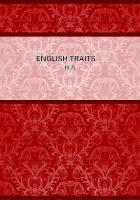Such is our fate. We are not so base as to endure it. Our right to resist oppression is not due to a decree of the National Assembly, but to natural law. We are going to leave, and to die if necessary.
But to live under such a revolting anarchy ! Should it not be broken up we shall never set foot in France again!"The operation is successful. The Assembly, through its decrees and institutions, through the laws it enacts and the violence which it tolerates, has uprooted the aristocracy and cast it out of the country. The nobles, now the reverse of privileged, cannot remain in a country where, while respecting the law, they are really beyond its pale. Those who first emigrated on the 15th of July, 1789, along with the Prince de Condé, received at their houses the evening before they left a list of the proscribed on which their names appeared, and a reward was promised to whoever would bring their heads to the cellar of the Palais-Royal -- Others, in larger numbers, left after the occurrences of the 6th of October. --During the last months of the Constituent Assembly,[35]
"the emigration goes on in companies composed of men of every condition. . .. Twelve hundred gentlemen have left Poitou alone;Auvergne, Limousin, and ten other provinces have been equally depopulated of their landowners. There are towns in which nobody remains but common. workmen, a club, and the crowd of devouring office-holders created by the Constitution. All the nobles in Brittany have left, and the emigration has begun in Normandy, and is going on in the frontier provinces.
"More than two-thirds of the army will be without officers." On being called upon to take the new oath in which the King's name is purposely omitted, "six thousand officers send in their resignation."The example gradually becomes contagious; they are men of the sword, and their honor is at stake. Many of them join the princes at Coblentz, and. subsequently do battle against France in the belief that they are contending only against their executioners.
The treatment of the nobles by the Assembly is the same as the treatment of the Protestants by Louis XIV.[36] In both cases the oppressed are a superior class of men. In both cases France has been made uninhabitable for them. In both cases they are reduced to exile, and they are punished because they exiled them selves. In both cases it ended in a confiscation of their property, and in the penalty of death to all who should harbor them. In both cases, by dint of persecution, they are driven to revolt. The insurrection of La Vendée corresponds with the insurrection of the Cévennes; and the emigrants, like the refugees of former times, will be found under.
the flags of Prussia and of England. One hundred thousand Frenchmen driven out at the end of the seventeenth century, and one hundred thousand driven out at the end of the eighteenth century! Mark how an intolerant democracy completes the work of an intolerant monarchy. The moral aristocracy was mowed down in the name of uniformity; the social aristocracy is mowed down in the name of equality. For the second time, an absolute principle, and with the same effect, buries its blade in the heart of a living society.
The success is complete. One of the deputies of the Legislative Assembly, early in its session, on being informed of the great increase in emigration, joyfully exclaims,"SO MUCH THE BETTER; FRANCE IS BEING PURGED!"She is, in truth, being depleted of one-half of her best blood.
IV.
Abuse and lukewarmness in 1789 in the ecclesiastical bodies. - How the State used its right of overseeing and reforming them. - Social usefulness of corporations.- The sound part in the monastic institution. - Zeal and services of nuns. - How ecclesiastical possessions should be employed. - Principle of the Assembly as to private communities, feudal rights and trust-funds. - Abolition and expropriation all corporations. - Uncompensated suppression of tithes.- Confiscation of ecclesiastical possessions. - Effect on the Treasury and on expropriated services. -The civil constitution of the clergy.- Rights of the Church in relation to the State. -Certainty and effects of a conflict. - Priests considered as State-functionaries.- Principal stipulations of the law. - Obligations of the oath. - The majority of priests refuse to take it. - The majority of believes on their side. - Persecution of believers and of priests.
There remained the corporate, ecclesiastic, and lay bodies, and, notably, the oldest, most opulent, and most considerable of all the regular and secular clergy. -- Grave abuses existed here also, for, the institution being founded on ancient requirements, had not accommodated itself to new necessities.[37] There were too many episcopal sees, and these were arranged according to the Christian distribution of the population in the fourth century; a revenue still more badly apportioned -- bishops and abbés with one hundred thousand livres a year, leading the lives of amiable idlers, while curés, overburdened with work, have but seven hundred; in one monastery nineteen monks instead of eighty, and in another four instead of fifty;[38] a number of monasteries reduced to three or to two inhabitants, and even to one; almost all the congregations of men going to decay, and many of them dying out for lack of novices;[39] a general lukewarmness among the members, great laxity in many establishments, and with scandals in some of them; scarcely one-third taking an interest in their calling, while the remaining two-thirds wish to go back to the world,[40] -- it is evident from all this that the primitive inspiration has been diverted or has cooled; that the endowment only partially fulfills its ends; that one-half of its resources are employed in the wrong way or remain sterile; in short, that there is a need of reformation in the body.














